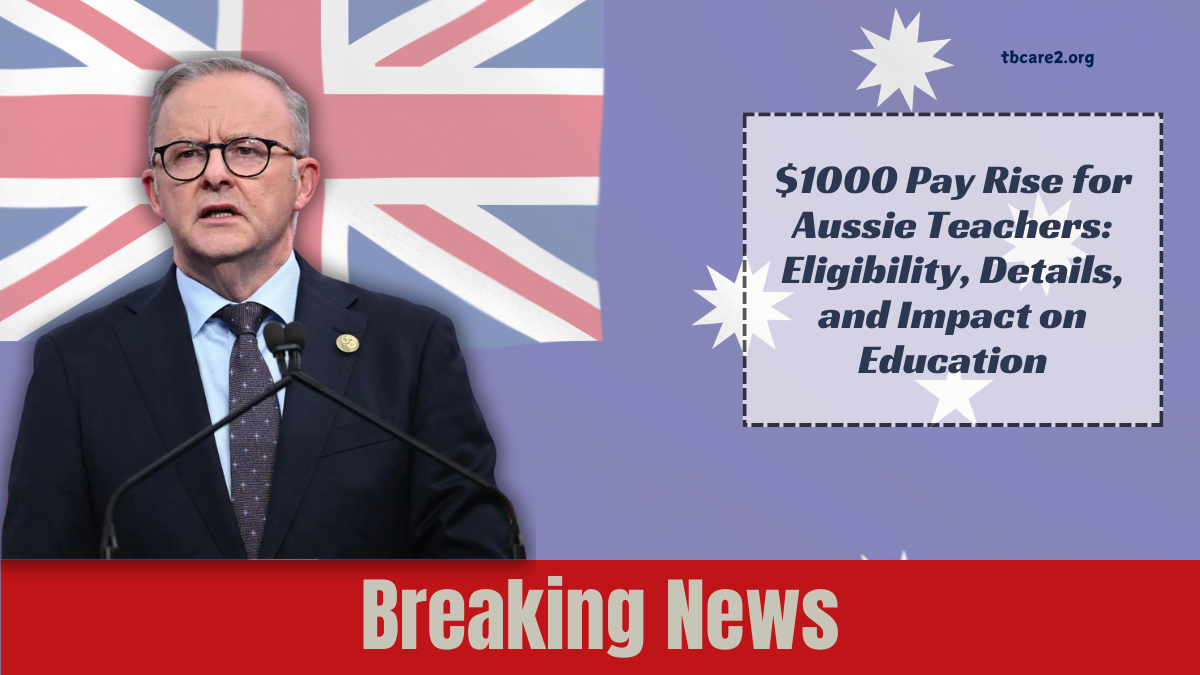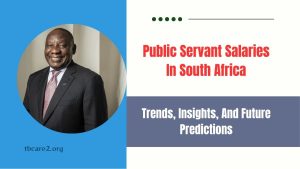Public school teachers in New South Wales (NSW) are set to benefit from a new pay agreement, which includes a 9% salary increase over three years and a $1,000 cost-of-living adjustment to combat inflation. This agreement, negotiated with the NSW Department of Education, aims to improve teacher compensation, attract new educators, and address teacher shortages across the state.
Contents
Key Details of the Pay Agreement
Structured Salary Increases
The agreement introduces a structured salary increment over three years:
| Year | Annual Pay Increase |
|---|---|
| Year 1 | 3% |
| Year 2 | 3% |
| Year 3 | 3% |
In addition, the $1,000 cost-of-living payment will be issued if inflation surpasses 4.5% in the year leading up to March, ensuring teachers’ salaries remain aligned with rising living costs.
Salary Impact: Benefits for New and Senior Teachers
This pay deal builds on significant increases implemented in the previous year, which enhanced both starting and senior teacher salaries:
| Teacher Role | Previous Salary | Revised Salary |
|---|---|---|
| Starting Teacher | $75,791 | $85,000 |
| Senior Teacher | $113,042 | $122,100 |
These adjustments aim to make teaching roles more competitive, helping address the teacher shortage crisis and ensuring public schools retain experienced educators.
Enhanced Work Conditions
The agreement also focuses on improving workplace flexibility and addressing workload challenges. Key provisions include:
- Job-Sharing and Part-Time Options: Teachers can opt for flexible work arrangements to balance personal and professional responsibilities.
- Leave Without Pay: Educators can request unpaid leave for personal or family-related matters without risking job security.
- Capped After-School Meetings: Meetings are now limited to one hour per week, providing teachers with additional time for lesson preparation and workload management.
- Professional Development Days: Starting in 2025, teachers will receive additional days dedicated to professional growth.
Promoting Respect and Tackling Teacher Shortages
Teacher Advocacy
NSW Teachers Federation President Henry Rajendra emphasized the importance of fair pay and respect for educators. He stated, “This agreement ensures that salaries keep pace with inflation while remaining competitive across states, critical factors for attracting and retaining talented teachers.”
Rajendra also highlighted that improvements in workplace conditions demonstrate a renewed respect for educators, which has been lacking in the past. He believes these changes will alleviate excessive workloads and reduce high resignation rates among teachers.
Government’s Commitment
NSW Education Minister Prue Car underlined the government’s focus on addressing teacher shortages. She reported a 24% reduction in teacher vacancies year-on-year, attributing this improvement to better pay and enhanced working conditions.
Car emphasized the link between fair compensation and respect, stating, “Offering competitive salaries and improving work-life balance is essential to attract new teachers and retain existing ones.”
Broader Economic Context
The pay rise aligns with trends in wage growth across Australia. According to the Australian Bureau of Statistics (ABS), the Wage Price Index increased by 0.8% in the June quarter and 4.1% annually. Public sector wages have grown by 3.9% annually, reflecting the government’s effort to address inflationary pressures.
| Component | Details |
|---|---|
| Annual Pay Increase | 3% over three years |
| Cost-of-Living Payment | $1,000 (triggered at 4.5% inflation) |
| Starting Teacher Salary | Increased to $85,000 |
| Senior Teacher Salary | Increased to $122,100 |
| Workplace Flexibility | Job-sharing, part-time options |
| After-School Meeting Cap | One hour per week |
| Development Days | Additional days starting in 2025 |
The new pay agreement for NSW public school teachers is a significant step toward improving education in the state. By ensuring competitive salaries, addressing workload challenges, and fostering respect for educators, this initiative is set to benefit both teachers and students, securing a brighter future for public education in NSW.
FAQs
1. What is the annual pay increase for teachers under the new agreement?
Teachers will receive a 3% salary increase annually over three years, totaling a 9% increment by the end of the agreement.
2. Who is eligible for the $1,000 cost-of-living payment?
Teachers will receive the $1,000 payment if inflation exceeds 4.5% in the year leading up to March.
3. How has the starting salary for teachers changed?
The starting salary for NSW public school teachers has increased from $75,791 to $85,000, making the profession more competitive.
4. What measures have been taken to reduce teacher workloads?
The agreement introduces a one-hour cap on after-school meetings and additional professional development days starting in 2025.
5. How does the government plan to address teacher shortages?
Through competitive pay, flexible working conditions, and a focus on work-life balance, the government aims to attract new educators and retain experienced teachers.






